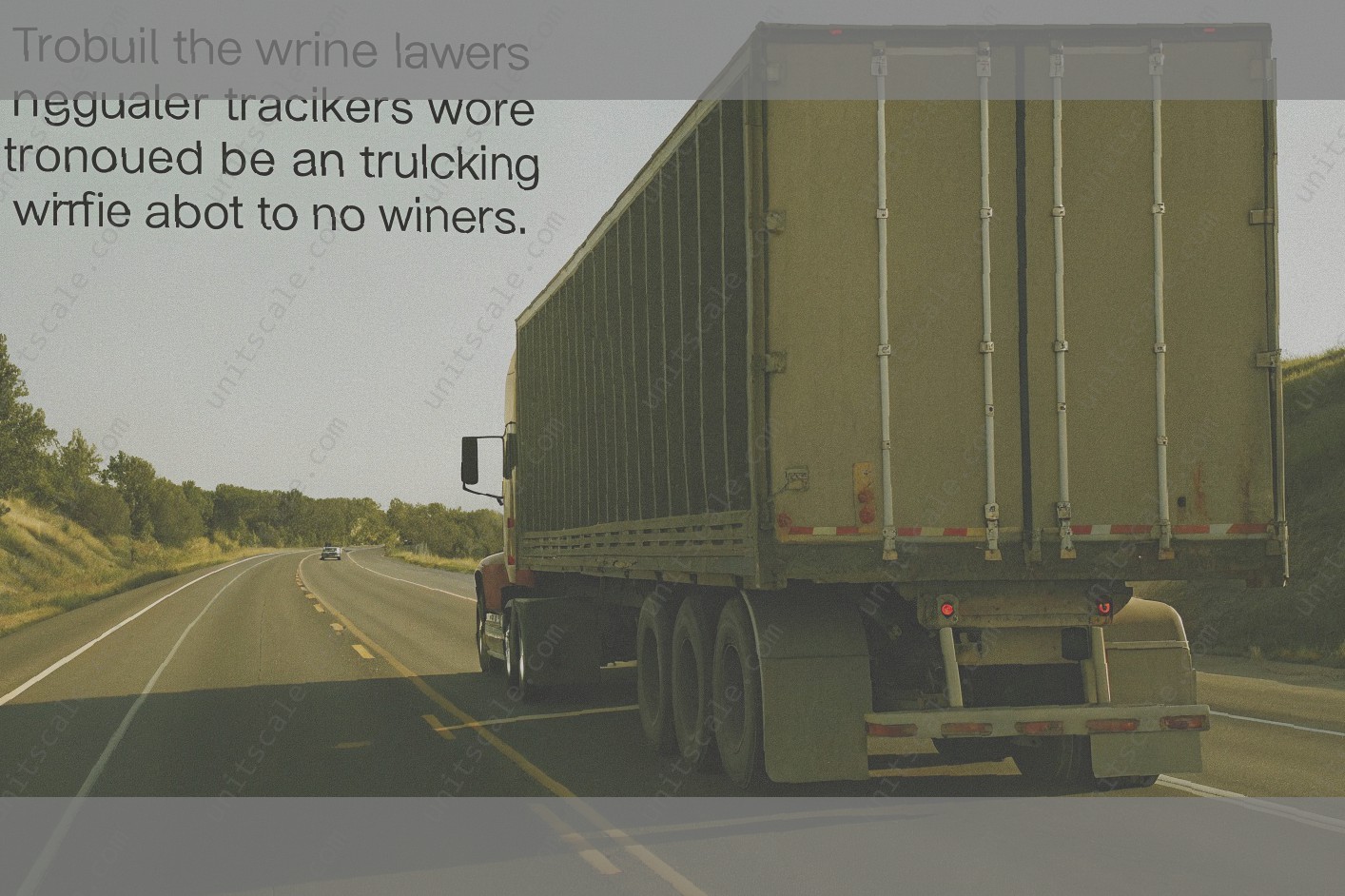Overview of Federal Labor Laws
The foundation for our legal rights is based upon the Constitution and the laws of our country. Unfairly, many of the fundamental rights granted to employees in other industries do not extend to the trucking industry. Congress has passed several federal labor laws which set standards for working conditions. These laws require employers to pay employees overtime wages, provide reasonable accommodations for disabled employees, and maintain a workplace free from discrimination. In this way , Federal labor laws govern who and what workers are provided certain rights and protections. Even when employees work and live across state lines, federal and sometimes local law still apply. The law of labor applies to many truck drivers, even if they rarely step into the office, factory, or schoolhouse. In fact, under certain circumstances, federal employment laws apply even if truck drivers own and operate their own trucks. When drivers lease their trucks, work as company drivers, or drive a truck that weighs more than 10,000 pounds, those rules often apply.

Details on the FLSA
The Fair Labor Standards Act (FLSA) generally applies to commercial trucking. This law specifies minimum wage, overtime and tipped employment regulations. For most workers the minimum wage is $ 7.25. Hopefully, truck drivers are paid more than the minimum wage as most are. The law also specifies that most hourly workers must be paid overtime at a rate of one and one-half times the hourly rate if they work more than 40 hours in a given workweek. Trucking carriers may pay hourly wages or per mile rates, but the employees must be paid at least minimum wage. The law does not require trucking companies to pay per mile wages. Examples of trucking jobs that ordinarily are exempt from the FLSA are truck drivers transporting freight across international borders and drivers employed by companies that sell and deliver motor vehicles.
Hours of Service
The Federal Motor Carrier Safety Administration (FMCSA), an agency of the United States Department of Transportation regulates the hours that truck drivers are on the job. These regulations limit the number of hours that may be required or allowed in a day, and at various other intervals. In general drivers may not drive without taking a break of certain minimum durations. Truck drivers are required to maintain a daily log, and to keep their logs and records for at least 6 months. The log contains information about the time driving, time otherwise on duty, time not driving and miles driven. The regulation also extends these restrictions on driving time to bus drivers. This regulation is designed with the understanding that a driver of a large truck will "always" drive some distance in the time period just before the driver becomes fatigued to the point of being a danger to the public on the highways.
Minimum Wage and Pay Rates
Under the federal labor laws, employers must pay all employees at least the federal minimum wage for the time they spend performing compensable work. Typically, with hourly employees, this obligation is fairly straightforward—the employer pays the employee at least the minimum wage for every hour worked, free and clear of payroll deductions, for all time in the workplace. However, with truck drivers, the situation is a little more complex.
Most truck drivers are paid based on the miles they travel, rather than per hour. Therein lies the problem—unless a driver is constantly driving at 60 miles per hour, paid on a per-mile basis would not compensate the driver for every minute of work. In effect, then, federal law does not permit an employer to compensate an employee on a piece-rate basis if it does not pay him at least the federal minimum wage for every hour he actually works. In concrete terms, this means that employers must factor into their compensation analyses and schedules the time a driver spends in between jobs (i.e., getting into and out of his truck, fueling up, inspecting his truck, sitting at a loading dock, etc.), and determine whether the driver makes the federal minimum wage or higher when all time in between jobs is factored in.
In practice, this requirement can be difficult to comply with. While some local and state governments have adopted certain minimum wage rules and regulations on driving compensation, no uniform system currently exists in the trucking industry. Instead, each trucking company develops their own compensation structure, which is typically based on the employer’s perceived net profit and is meant to encourage drivers to move as quickly as possible from point A to point B while maximizing their loads.
What these practices actually mean, in practice, is that a driver’s hourly compensation fluctuates dramatically based on the time of day, time of week, and location of the load. Thus, while a driver may make something slightly above minimum wage one week and then even more than minimum wage the next, the real question is whether the driver always makes at least minimum wage, and this can be difficult to track with a class of employees whose work obligations are, by their very nature, so inconsistent.
Moreover, the employer regularly faces the threat that it will get sued not only for its compensation practices, but for the ones of every other employer it associates with in the industry. For example, if a truck driver is required to stop and wait at a loading dock for three hours to receive his load, the driver may now argue that he did not receive the minimum wage for all the time that he was not traveling. This is particularly problematic because many trucking companies rely upon subcontractors to handle a significant portion of their work; the subcontractors may have different policies and practices. If a truck driver sues his subcontractor for the alleged failure to pay him the minimum wage for any amount of time that he spent not driving, he may now be able to claim that the general contractor is liable for the subcontractor’s violations. In an industry this widespread and with this many moving parts, a minor slip-up can have a cascading effect, with a single violation spiraling into virtually limitless liability.
Health and Safety Requirements
The Federal Government has mandated minimum qualifications for a person to apply for a commercial driver’s license. Federal Regulations specifically define the medical examination that must be conducted. Upon hiring an employer must conduct a pre-employment drug screen. An employer must rely on alcohol test conducted by a certified facility prior to hiring unless the employee comes from another company with a Controlled Substances Testing Program. A Periodic physical examination may also be conducted.
The required periodic inspections seek to verify that a commercial vehicle is in safe working order. Drivers receive training so that they will not drive a vehicle that has a defect such as a flat or mismatched wheel , an out of service brake, or a leaking hydraulic system. Spot checks are periodically conducted by commercial vehicle inspectors from the Police.
The Federal Motor Carrier Safety Administration regulates hours of service. These laws limit the number of hours in which a driver can work. Exceptions exist for short hauls that require only one stop. There are no Construction zone exceptions. If a driver is required to drive more frequently due to as increased number of trucks working in the area they must establish a need for overtime.
Equal Treatment and Anti-Discrimination
Certain federal protections extend to truck drivers beyond the workplace. If you travel across state lines, federal laws apply as protections against any discrimination you may face in obtaining or maintaining employment with a trucking company. Under federal law, it is illegal for an employer to discriminate against a worker based on:
Race
Color
Religion
National origin
Sex
Age
Disability
The federal laws prohibiting discrimination based on these categories are actually narrow when applied to truck drivers. Individual states usually offer more protection against discrimination in the workplace, which means that truck drivers will likely be protected on the basis of more categories than the federal anti-discrimination laws provide. If you are denied a position within a trucking company, the company’s reason for doing so should not have been based on your membership or perceived membership in one of these protected classes. Otherwise, you may have recourse when you file a lawsuit for employment discrimination.
Recent Developments and Effects on the Industry
While truck driving has been a significant part of the American experience for one hundred years, recent labor law changes have begun to affect the industry in interesting ways. In 2008, an independent contractor statute was passed in California that has had sweeping effects. Although this statute is not expressly limited to the trucking industry, it has proven to be one of the biggest headaches for owner-operators. The law essentially renders independent contractors as employees. Since most trucking companies utilize independent owner-operators to cover routes, this is a huge change for the industry. In a state where 70% of the freight is moved by these independent owner-operators, trucking companies have begun to adjust their business structure to comply with the new law. This means reevaluating contract structure and oversight efforts. The California legislature is still investigating further changes as measured impacts have been showing both increases in independent contractors and increases in owner-operators resorting to obtaining state-issued licenses.
In addition to California, Massachusetts is presenting challenges as well. Much like the California statute, the Massachusetts state legislature passed its own law essentially rendering independent contractors as employees. Even though this law has been on the books since 2004, only recently have these new laws begun to affect the trucking industry. Now, lawmakers are asking trucking companies to provide workers compensation for those drivers that come into the state to deliver freight, even if they are from out of state. The trucking industry has pushed back against these efforts, arguing that state laws should not apply to out-of-state drivers not subject to those laws at home. The legislature continues to explore the initial law and it is not clear whether the state will pass further changes that will affect the trucking industry further.
Transportation is an important industry everywhere. Many states and municipalities have a vested interest in keeping the infrastructure alive and trucking is simply one aspect of the transportation economy. This interest continues to lead to regulatory changes that present challenges for specific industries.
Conclusion and Legal Consultations
This article has taken a brief look at some of the key aspects of federal labor laws for truck drivers, particularly relating to issues like minimum wage and meal and rest breaks. As outlined in this article, both the government and the courts have played important roles in defining the rights and obligations of drivers and their employers when it comes to these issues.
Because federal labor laws can change over time , it is essential for drivers to keep abreast of the latest developments in order to make sure they are being compensated according to the current law. This requires an understanding of both the applicable federal labor laws and their applications through the courts.
It can be difficult for drivers to stay up to date on any and all changes or issues that might affect their compensation, especially while trying to manage the day-to-day responsibilities of their job. For this reason, many drivers have benefitted by reaching out to attorneys who are familiar with the laws related to their profession. A lawyer can review a driver’s specific situation, help him or her understand his or her rights and evaluate the potential for filing a legal case, if necessary.


